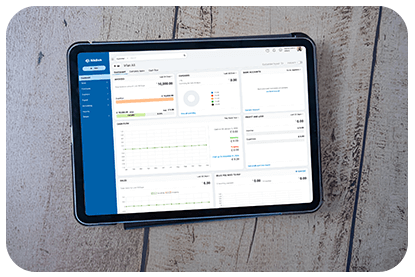19 April 2024
How Bookkeeping Services Can Save You Time and Money
Managing finances is crucial for any business. However, bookkeeping can be time-consuming and complex. This is where professional bookkeeping services come in. They streamline financial processes, helping businesses save both time and money.
What Are Bookkeeping Services?
Bookkeeping services handle financial records, ensuring accuracy and compliance. They track income, expenses, invoices, payroll, and taxes. With their expertise, businesses can maintain financial health effortlessly.
Benefits of Bookkeeping Services
1. Saves You Valuable Time
Handling financial records manually can take hours. Bookkeepers handle transactions, allowing business owners to focus on growth. With automated reports and organized records, financial management becomes hassle-free.
2. Reduces Costly Errors
Mistakes in bookkeeping can lead to penalties and financial loss. Professional bookkeepers ensure accuracy, reducing the risk of errors. They also keep track of tax deadlines, avoiding unnecessary fines.
3. Improves Cash Flow Management
Tracking cash flow is vital for business success. Bookkeepers provide real-time insights into revenue and expenses. With proper cash flow management, businesses can make informed financial decisions.
4. Helps with Tax Preparation
Tax season can be stressful without organized financial records. Bookkeepers prepare essential documents, ensuring timely tax filing. They also help maximize deductions, reducing tax liabilities.
5. Enhances Business Growth
Accurate financial reports provide insights into business performance. With clear data, business owners can identify opportunities and make strategic decisions. Proper bookkeeping lays the foundation for sustainable growth.
Types of Bookkeeping Services
1. Traditional Bookkeeping
This involves manual record-keeping using spreadsheets or ledgers. It is time-consuming but suitable for small businesses with limited transactions.
2. Online Bookkeeping
Cloud-based solutions allow real-time access to financial data. Online bookkeeping services offer automation, reducing manual work.
3. Outsourced Bookkeeping
Many businesses prefer outsourcing bookkeeping to professionals. This saves costs and ensures expertise in financial management.
How to Choose the Right Bookkeeping Service
1. Consider Your Business Needs
Determine whether you need full-time, part-time, or outsourced bookkeeping. Choose a service that aligns with your business size and complexity.
2. Look for Experience and Expertise
Bookkeepers should have industry knowledge and experience. Ensure they understand tax regulations and financial reporting standards.
3. Check for Software Compatibility
If you use accounting software, choose bookkeepers familiar with your platform. This ensures seamless data integration and efficiency.
4. Evaluate Pricing and Services
Compare pricing plans and services offered. Some bookkeepers charge hourly rates, while others offer fixed monthly plans.
Conclusion
Bookkeeping services are essential for financial stability and business success. They save time, reduce errors, and improve cash flow. By outsourcing bookkeeping, businesses can focus on growth while ensuring financial accuracy.




